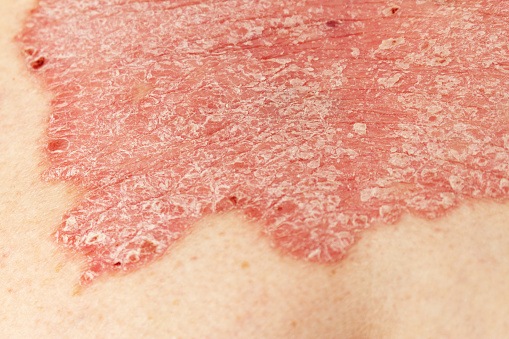
Interleukin-23 inhibitor guselkumab is used to treat adult patients with moderate-to-severe plaque psoriasis. Previous studies have shown an additional benefit for patients with early inadequate response to ustekinumab. This study analyzed the long-term efficacy of guselkumab versus ustekinumab in patients who do not have a history of ustekinumab.
To conduct their study, the researchers evaluated individual patient data from randomized controlled trials. Patient data pertaining to guselkumab use from the VOYAGE 1 and VOYAGE 2 trials were combined and measured against ustekinumab data from the NAVIGATE trial. Guselkumab 100 mg and ustekinumab 45 mg and 90 mg were compared for their ability to achieve and maintain Psoriasis Area and Severity Index (PASI) 90, 75, and 100 responses up to 40 weeks. Multivariable logistic regression analyses were used to compare outcomes between the groups; the models accounted for clinically relevant factors including age, sex, and disease duration. The researchers recorded relative efficacy using odds ratios (ORs) and treatment response predicted probability for each of the interventions.
The patients taking guselkumab were significantly more likely to achieve a PASI 90 response than the ustekinumab patients at week 16 (70.4% versus 46.0%, OR 2.79, 95% CI 2.22 to 3.45) and week 40 (74.2% versus 54.5%, OR 2.40, 95% CI 1.89 to 3.13). guselkumab patients were also more likely to achieve PASI 75 and PASI 100 responses at the same timepoints.
“Adjusted analyses leveraging [individual patient data] demonstrates that guselkumab has a significantly higher probability of achieving and maintaining PASI treatment response through week 40 compared with ustekinumab,” the study authors concluded.







 © 2025 Mashup Media, LLC, a Formedics Property. All Rights Reserved.
© 2025 Mashup Media, LLC, a Formedics Property. All Rights Reserved.